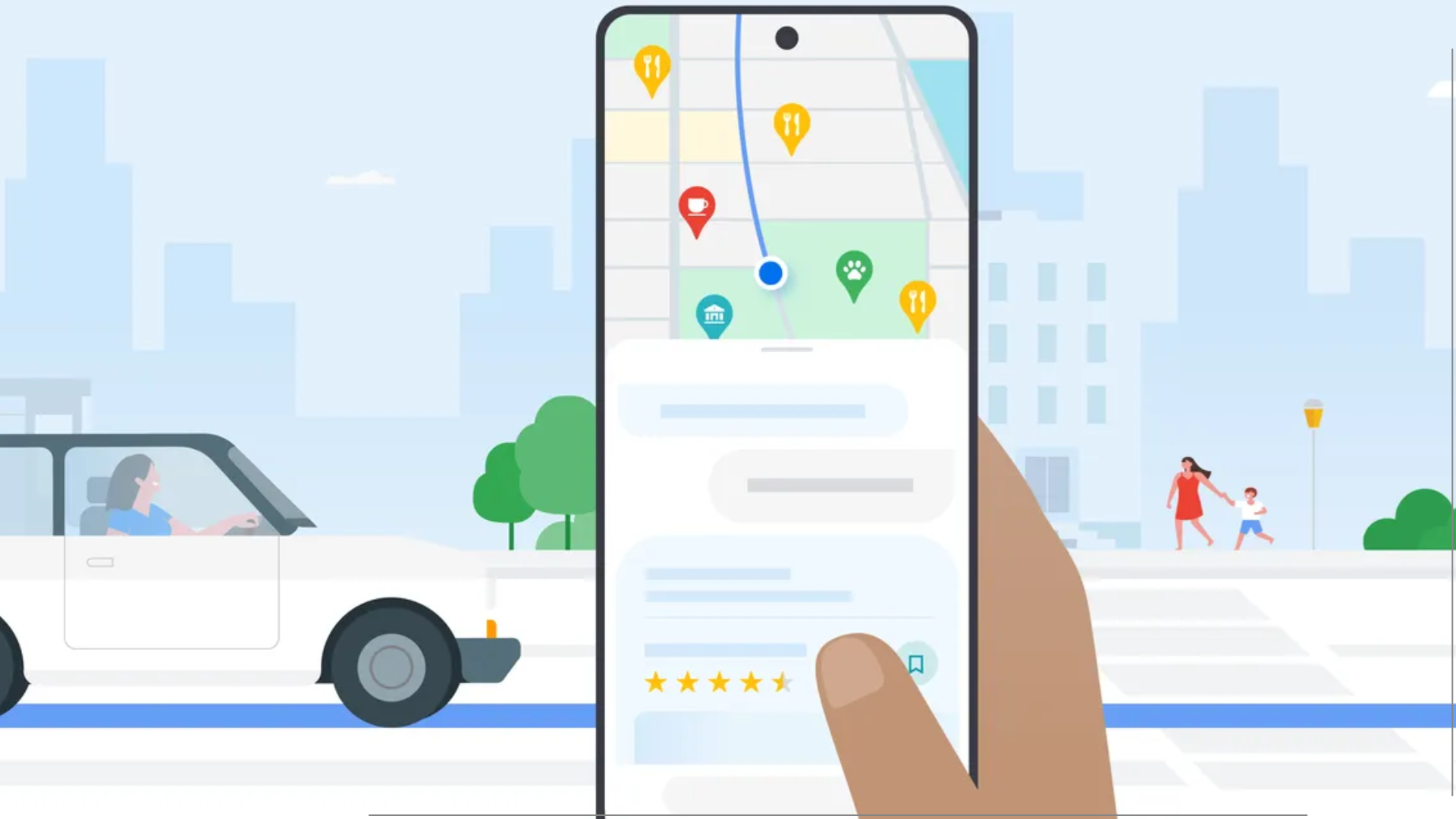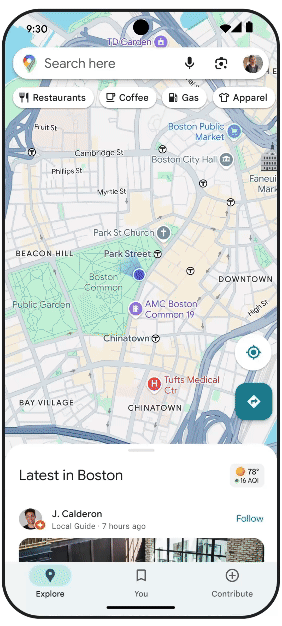Gemini AI starts riding shotgun on Google Maps
Upcoming Gemini Extensions will handle your WhatsApp and Spotify requests

Google Maps is becoming more of a tour guide thanks to Google’s Gemini AI models. The AI assistant will offer suggestions for places to visit, sum up reviews, and answer your questions about locations from the Maps app on Android and iOS devices in the U.S., based on insights culled from data about millions of locations worldwide. The update shows that Google's infusion of Gemini AI across its services, especially on mobile devices, is accelerating, as Google Maps sees more than 2 billion users a month and is updated 100 million times a day.
The most notable update melds Google Maps with Gemini's flexible conversational interface to provide ideas for places to go based on your queries. You might ask for family-friendly spots to visit on a Saturday or cheap restaurants to eat at that are near a concert you're attending at night. Gemini will sort through data from Google Maps to curate recommendations.
The idea is that Gemini will not only have a list of spots but AI-generated information that goes as deep as you want it to. That's why Gemini will also summarize reviews of locations you're interested in. Instead of scrolling through what people have said, you can see a Gemini-written composite that spotlights elements, good and bad that reviewers have highlighted. Google suggests this will speed up decision-making as it is a more concise snapshot of how people feel about a place.

AI guidance
Should the review summary not be enough, Google Maps is also leveraging Gemini to answer your specific questions about a location. You can ask about any facet of a venue, whether factual, like its opening time, or more opinion-based, like how people feel about the atmosphere. Gemini will dive into the information available from the location and people's reviews to answer. The response will also use Gemini to be conversational, even throwing in extra details you might not have asked for but that are relevant to your initial question. This feature won't be limited to Maps for long, either, according to Google.
"All of these features are made possible thanks to Gemini’s powerful creation, reasoning, and summarization capabilities — grounded in our trusted data about 250 million places around the world and insights from the Maps community," Google wrote in a blog post. "You’ll also see similar experiences in the coming months on Search — including AI-powered review summaries and the option to ask detailed questions about places."
The Gemini AI upgrades complement several other new Google Maps tools now rolling out. You can now use the app to look at route stops before you leave, see detailed visual navigation guides for when an intersection has complex entrances and exits, and even see weather disruptions along your route as they develop. Google Maps is also taking up a more holistic approach to managing your arrival, showing parking spots, and walking directions to the entrance of your destination.
You might also like
- Google wants Gemini AI to be the star of every part of your life
- Google is making Gemini AI part of everything you do with your smartphone – here's how
- Gemini will soon call and text for you, without you needing to unlock your phone
Get daily insight, inspiration and deals in your inbox
Sign up for breaking news, reviews, opinion, top tech deals, and more.

Eric Hal Schwartz is a freelance writer for TechRadar with more than 15 years of experience covering the intersection of the world and technology. For the last five years, he served as head writer for Voicebot.ai and was on the leading edge of reporting on generative AI and large language models. He's since become an expert on the products of generative AI models, such as OpenAI’s ChatGPT, Anthropic’s Claude, Google Gemini, and every other synthetic media tool. His experience runs the gamut of media, including print, digital, broadcast, and live events. Now, he's continuing to tell the stories people want and need to hear about the rapidly evolving AI space and its impact on their lives. Eric is based in New York City.